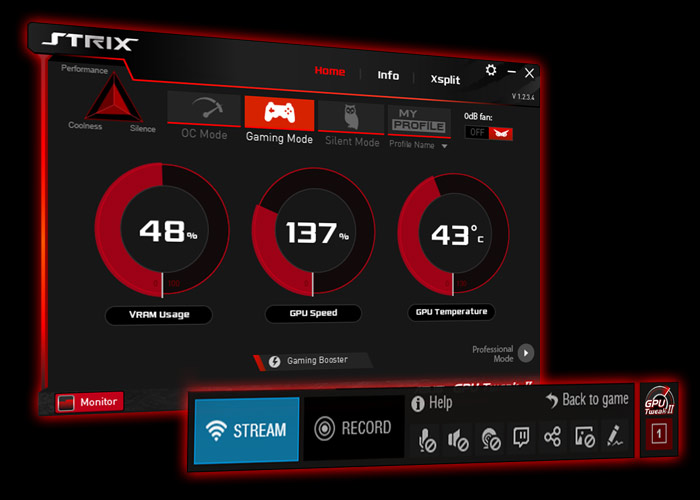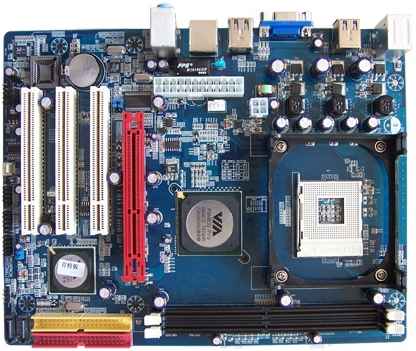Asus Hyperion Pro Driver Package Windows Xp
Description Missing or corrupt drivers affect the overall performance of a Windows OS. Installing the latest Network Card drivers can fix this problem, however, manual installation is time-consuming and tiresome. The recommended Driver Restore utility is an effective and quick way to download the latest Network Card drivers. The software is compatible with Windows 10, 8.1, 8, 7, XP & Vista. The tool has been developed to scan for the outdated or missing Network Card drivers and download their up-to-date, compatible version. How Driver Restore Updates Your Computer Drivers?. Fast Scanning Engine The software scans your computer and attached devices for missing, corrupt or outdated drivers within a short span of time.
Free ASUS P5VD2-VM SE drivers for Windows XP. VIA Hyperion Pro Chipset Driver Package for ASUS P5VD2-VM SE VIA Hyperion Pro Driver Package, version 5.15A. Download VIA HyperionPro Driver Package. The HyperionPro package supports 64 bit Microsoft Windows XP. The latest version of the Hyperion 4in1 driver package.
Huge Database Search from over 11 million up-to-date device drivers. Official Driver Downloads Download the official brand drivers that are specific to the device, type and model.
Compatible Drivers 11 million driver database provides the latest and most compatible drivers for your PC. Minimize Hardware Connectivity Problems Install device drivers to enhance the performance of the device, thus, optimizing the performance of the PC. Common Questions and Answers.
What are drivers? Drivers are special pieces of software that allow Windows to communicate with other software programs and hardware. Any hardware you connect to your computer wouldn't work properly without its appropriate drivers. What causes driver-related problems?
Uninstalling / reinstalling programs, upgrading software or hardware, Windows updates or service pack upgrades, or spyware/virus infections to become corrupt can cause your drivers become outdated. What are the problems caused by corrupt drivers? Corrupted or outdated drivers often create file errors, communication problems, or hardware malfunction in Windows. Common problems include no sound, printing malfunctions, video / screen problems. How can I resolve driver related problems?
The simplest, fastest way to resolve driver related issues is to Download Driver Restore and follow the instructions above.
Tech Points: 2 From: CAN Posted: 8:56:00 AM # 3 Hi Ulrich, thanks for responding. I've experienced three events of system instability since upgrading my CPU, and upgrading to Windows 8. I am not sure if I've identified the first issue below yet because I haven't had enough time to test the system.
The second is, mostly, solved. The third is probably solved and most likely was not related chipset drivers. 1) This issue was, (hopefully), identified and fixed last week. But I am not sure, yet.Infrequently, the system crashes during Windows 8 startup. Normally, following the Windows 8 loading screen, the monitor LED goes from (active) blue to (inactive) orange for a second, then it should go blue again and the Windows 8 Lock Screen is supposed to appear. Instead, after the loading screen, the LED stays orange.
The screen stays black. And about 3/4ths of the times this happens, the monitor will turn back on but I get the Windows Crash Dump Screen that says DRIVERPOWERSTATEFAILURE.

Last week, I attempted to patch it by disabling Windows 8 Fast Startup, which uses the (Hibernate) Sleep State. My system is incapable of recovering from and Steep States when overclocked, and so I am hoping that these two issues are related and thus disabling Fast Startup and Hibernate Sleep States will resolve this issue.Thread on this issue, for reference: 2) This issue was, (hopefully), solved.TL;DR: Audio output on speakers frequently became garbled and high-pitched. However, if recording using Open Broadcaster Software, the recorded audio would not be affected. The audio stayed garbled until all applications that used audio were closed, i.e.
If two running applications were using audio, closing just one would not fix the audio; closing both applications made the issue go away. Disabling CMSS in Audigy Control Panel, (the application for controlling settings for my sound card, a Creative Sound Blaster Audigy 2), seems to stopped this from happening, (except it still infrequently happens but is much less intense- barely noticeable). 3) This issue was, (hopefully), solved.TL;DR: Sporadic system freeze. I identified two causes:Insufficient AGP Voltage and CPU/GPU thermals too high due to overclocking. Full story, for reference: The first issue was a sporadic system freeze accompanied by a squeal from my speakers and frozen screen image.

It would happen in any situation, from my idling desktop a minute after boot, to running FooBar2000, to playing a game. This happened system overclocked, or not. I bumped the AGP Voltage from 1.5V to 1.6V and that increased stability a lot, (using a Sapphire Radeon HD3850 512MB).
I still had the problem when overclocked, and although I had thought I ruled out the overclock, I was forced to question it again. This time I stress tested the CPU, RAM and GPU at the same time instead of testing them independently. I used IntelBurnTest with the Maximum memory use setting and FurMark to bring the load on my CPU and GPU to 100%. I discovered my temperatures on both CPU and GPU were approaching catastrophic levels, so I have re-calibrated my overclock using this technique.
Pro Driver Driving School In Ohio

I was hesitant to run simultaneous stress tests before- I didn't think it was the overclock because I ran independant tests over and over, and didn't see the thermals get nearly as high as when I combined them. And the system still froze using stock frequencies, due to the need to bump the AGP voltage from 1.5V to 1.6V. That was my red herring when troubleshooting this issue. 1:: Moderator: Forum Model: ©ASUSTeK Computer Inc. All rights reserved.